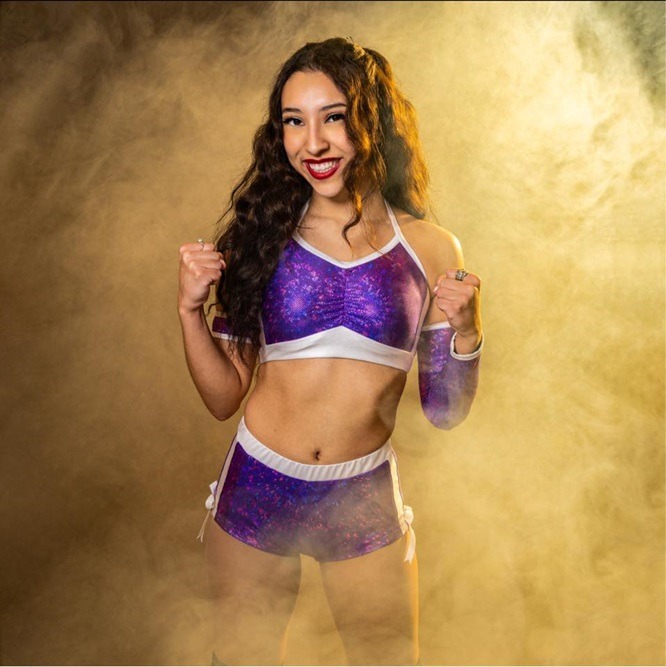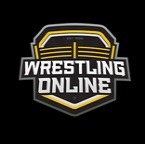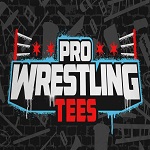King Haku – Celebrating 30 Years

by @Ite Lemalu
Today marks the 30th anniversary of King Haku’s royal coronation. This event was televised on the 9th of July edition of WWF’s flagship show, Superstars of Wrestling. I can imagine that some people may not see the importance of this event; they may even find it foolish, so I will explain in detail the significance of this event from my perspective; as a New Zealand born Samoan. This event holds a significance of influence regarding the visibility of Pacific Island people, on screen: In this article, I share my memories of this joyous event; I also have the privilege of sharing perspectives from pro wrestlers Tama Tonga, Bad Luck Fale, Sonny Siaki, Nui Tofiga and Mana – all of whom are of Pacific heritage. In addition to their thoughts of the coronation, these men will also express the impact that King Haku had on them as Pacific Islanders and professional wrestlers.
The ‘King of Wrestling’; a title that was created in 1986 and bestowed upon Harley Race after winning the ‘King of the Ring’ tournament. However these titles are not the same; the KOTR title would reset every year with a different winner, whereas the “King of Wrestling” served as a form of recognition to Race, a former 8 time NWA World Champion and a respected elder. The Kingship was under the facilitating of Bobby Heenan and although it did not equate in value to a championship belt, it was occasionally contested by the opposition and done so unsuccessfully; the most notable of those opponents being the Junkyard Dog at WrestleMania III.
In 1988, Harley Race suffered a severe injury which put him out of action for most of the year. Bobby Heenan eventually took the crown from Race and went on a search to crown a new King; this brings us to the 9th of July, in the year of our Lord, Nineteen Hundred and Eighty-Eight! The WWE’s villain community, congregated in the ring to await the announcement of the new ‘King of the World Wrestling Federation’. This was one of the first episodes of ‘Superstars’ that I remember, and I was not yet familiar with the identities of the wrestlers. What I miss about wrestling that was clear throughout the coronation was that it was simple to tell the heroes from the villains. The moment I saw the gathering of wrestlers in the ring, I knew that I was looking at a fraternity of antagonists. The ‘boos’ coming from the crowd might have indicated that setting, however, the scenery was confirmed by the lost art of subtlety that was conveyed by the wrestlers through their posture, mannerisms and dress wear. There were no smiles or friendly chit-chat among the guests despite it being a celebration in their community. Distinguished attendees like the Big Boss Man, the One Man Gang, Bad News Brown, and Demolition were equipped to spark fear and intimidate. The pompous figures such as the Honky Tonk Man, Ravishing Rick Rude and the Million Dollar Man Ted Dibiase gave the impression that no one else mattered but them. My favourite wrestling villain was the type that was unfazed by the fans’ disapproval, this would only make the crowd increase their hatred. This gathering was also a culturally diverse bunch; consisting of foreigners that showed disdain for America. These ‘international’ villains of the ‘80s were normally stereotypes and represented nations that went to war with America and its allies; such threats included Nikolai Volkoff and Boris Zhukov, the two staunch, burly Russians who wore the Soviet apparel with pride; Frenchy Martin, the French painter, and Mr. Fuji, the devious Japanese dressed in a tuxedo and bowler hat.
The ceremony commenced with words from the officiator, Bobby Heenan, assuring his community that the new King had arrived. Heenan introduces everyone to the King of the WWF, and from the entrance way comes Haku! I’m surprised as I notice that the new King isn’t just any foreigner; the new King resembles my Pacific features and brown skin! I learn along the way of Haku’s identity from (colour commentary antagonist) Jesse Ventura’s glowing references. I’ve noticed how well Haku is received by the other villains; the mood changes to smiles and adoration as Haku acknowledges them with a wave and smile.
I have watched this segment many times over the years, and I’ve come to grasp the importance of this historic event: My childhood heroes in 1980s New Zealand were dominantly influenced by American pop culture; names like Hogan, Macho Man, Warrior, even to broader parts of entertainment; Arnold, Van Dam and Stallone were considered the biggest box office action heroes. It didn’t matter what character Arnold played or movie he led, in many Samoan homes the character’s name was ‘ARNOLD!” My heroes weren’t Samoan or Pacific Islander/Polynesian like me; I didn’t resemble a likeness to Arnold or Van Dam, but I’m sure like other Pacific children, that I wanted to be like Arnold. King Haku came close to being my first Pacific Island hero; I didn’t care if he was a bad guy. Haku was the first of the Pacific wrestlers I saw on television, and from that point on my perspective of the narrative had changed; King Haku wasn’t a bad guy; the fans were just misunderstood.
Long before the Rock had broken barriers for Pacific people in pro wrestling and Hollywood, Pacific Islanders were limited to depicting a stereotype – the barefoot, hard-headed (literally) island savage. The typecast was modestly humanized (westernised) for the protagonists by being ‘domesticated’ as friendly and well-spoken; while the vilified ‘savage’ was uncivilized, aggressive and did not speak English. Times have drastically changed, Pacific wrestlers now have more freedom and options to fuse their ethnic identity with western culture, though the island savage is still a relevant and celebrated character. King Haku was not an ordinary ‘savage’; he remained a barefoot antagonist and the majority of speaking was still handled by his manager Bobby Heenan; however King Haku was civilized, reserved and when given the opportunity, he spoke with great authority: This may have been a case of colonialism, but it was really an accurate portrayal of the general Pacific Island male.
Samoan wrestler Nui Tofiga explains Haku’s influence on him as a fan “Haku always held my attention when I was growing up. When my relatives in Hawai’i would see Haku and other Polynesians on TV, they would feel proud and say ‘that’s what a man looks like’. You tend to pick up on that and think that maybe I should make these guys my role models”. Tofiga, a gifted and agile super heavyweight credits Haku and other Polynesian wrestlers for the way he has embraced his physical attributes and culture, “I wasn’t going to change who I was to try and look like Hulk Hogan. Every Polynesian that I grew up watching in wrestling made me proud to be myself.”
Prior to taking over the crown, Haku was part of a tag team called the Islanders (along with Tama). Wild Samoan Training Center graduate and NHPW Owner, Mana, is Maori, the native culture in New Zealand; he recounts on the chemistry between Haku and Tama; “I remember watching Haku as the Islanders with Tama (from the Anoa’i family). The Islanders were one of my favourites and inspired me to become a wrestler. Tama was like the cheeky uncle you had a laugh with and Haku was the quiet one you always feared.” Haku and Tama displayed a tag team style that was ahead of its time. Tama’s speed and agility blended well with Haku’s power and strikes; as Mana explains in detail, “I still believe Haku’s Thrust/Superkick was as superior to any version I have seen in wrestling, even now. I loved his offence with the chops, martial arts thrusts etc. I always wanted to thank him for his accomplishments and inspiration to someone like me.”
The history into Haku’s martial arts background can be traced back to his youth, growing up in his native Tonga in the 1970s: During that time a young Tonga Fifita was one of several teenagers selected to study the art of sumo wrestling in Japan. Fifita was a successful competitor in sumo, however, due to a political dispute involving a sumo trainer, Fifita was forced to retire. From there Fifita made the transition to professional wrestling and competed for Giant Baba’s All Japan Pro Wrestling. “The Underboss” Bad Luck Fale followed a similar journey, beginning in 2001 when Fale; an elite rugby union player in high school, moved from his home New Zealand to Japan in pursuit of furthering his aspirations. Fale remembers growing up in South Auckland as a young boy, watching the King’s coronation on TV, “King Haku made me feel that as a Tongan, I can conquer the world. He was the first famous Tongan in my eyes and became the idol I aimed to become.” In 2009, Fale took off his rugby jersey following his retirement from the game (due to injury) and put on pro wrestling gear. Fale found success with New Japan Pro Wrestling; his athleticism, humility, and willingness to learn made Fale an asset: Fale’s character assured NJPW that they could invest and depend on him. Following the formation of the Bullet Club, Fale would be joined shortly after by Tama Tonga. Tama was not just a fellow Tongan; Tama was one of Haku’s sons. This soon led to an opportunity for Fale to meet his idol in 2014; “I just remembered how huge he was. Haku is the most feared wrestler in and out of the ring but he’s the most kind-hearted guy you’ll ever meet”.
In 2016, Haku visited New Zealand; during his stay, Haku gave an in-depth interview with an Auckland radio station; a key theme that resonated with Haku was his support for all the Pacific Islanders that are situated across the world. Haku was inspired by the multicultural society of New Zealand, in particular, the different Pacific cultures and Maori that co-exist. Haku expressed his passion for hospitality and is comforted knowing that Pacific communities exist beyond the Islands.
Former WCW and IMPACT! Wrestling star Sonny Siaki was a recipient of Haku’s hospitality and attested to Haku’s character; “I first met Haku in 1998 when I was at the WCW Power Plant training as a wrestler! He’s huge and very intimidating in person but he took me in like his own ‘cause I am Samoan and of course, we all stick together like a family.” Siaki noted on Haku’s influence on his wrestling career; “He definitely made a huge impact on me along with the Rock, Rikishi, Afa, Sika, Umaga and many other islanders who came before me. Haku is definitely one of the first wrestlers to put our culture on the map. When I first started he gave me many advice and pep talk before walking out. He had an old school mentality and had great in-ring psychology”.
Haku’s son Tama Tonga recounts his first memories of his father; the wrestler; “I was adopted, and I came here to America from Tonga in 1991. Basically, I saw him on TV a lot, and it made me realize that he was the first Tongan at least to my knowledge to make a name for Tongans. I thought that was really cool”.
Tama and his two brothers Tanga Loa and Hikuleo are mainstays on the New Japan Pro Wrestling roster and along with Badluck Fale; they have made up the backbone to the mighty Bullet Club; “Seeing my dad on TV had a big impact on me as a Tongan. My dad came to America for a better life, and he always tried to set an example for me and my siblings to never give up and keep moving towards achieving our goals.”
Tama also added on Haku’s love for his Pacific people, “My dad is that guy who’s proud of any Polynesian that he sees playing sports; just seeing them representing where they come from – makes him proud. He’s continuously trying to be a good role model and dad. He’s always rooting for the Tongans that play rugby regardless of what country they play for; even when he sees Polys playing football like the Samoans and Fijians, he’s always got love for everybody”.
After reading my perspective and the stories of the wrestlers who were inspired by King Haku, I hope you now can understand the significance that King Haku has had on his people and to a great extent – on pro wrestling. King Haku may have just been a character that was brought to life by Tonga Fifita, but I would suggest that Tonga Fifita has displayed the fruits of a kind and generous ruler. To Haku’s family, he was a loving provider; steeped in principles and values. As a teacher, he offered words of wisdom and guidance to a young Samoan wrestler who was making his way into the wrestling profession. On the radio, Haku delivered messages of support to all the Pacific people he sees chasing their dreams in the public eye; he encourages the young to pursue higher education and has as a passion for Pacific communities. To me; King Haku was the first prominent Pacific character to be shown on an international screen; the ascension of King Haku exemplified that Pacific wrestlers that followed could achieve their goals without compromising their identity. LONG LIVE THE KING!
Thank you to @Tama_Tonga @TOKSFALE @ManaPW @usoATL and @2NuiTofiga for contributing to this article. Alofa atu.




